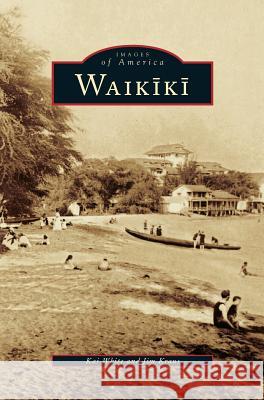Waikiki » książka
Waikiki
ISBN-13: 9781531630232 / Angielski / Twarda / 2007 / 130 str.
Waikiki, literally "spouting water," is the name of what was once a lush wetland area where three mountain streams met the Pacific Ocean. Under the care of Native Hawaiians, it was a place of rich, sustainable agriculture and aquaculture. With changes brought by Western settlement, Waikiki was transformed into one of the most popular beachfront tourist destinations in the world. With a topography featuring Diamond Head, the pristine Pacific Ocean, and the expansive Kapi'olani Park, recreation has often reigned in Waikiki. However, it was once a place of small neighborhoods, familyowned shops, restaurants, and lei stands. As locals met foreigners, Waikiki's landscape changed from rural to urban. Today an estimated 65,000 tourists visit Waikiki each day. A big city or small town, Waikiki is many things to many people.
Waikiki, literally "spouting water," is the name of what was once a lush wetland area where three mountain streams met the Pacific Ocean. Under the care of Native Hawaiians, it was a place of rich, sustainable agriculture and aquaculture. With changes brought by Western settlement, Waikiki was transformed into one of the most popular beachfront tourist destinations in the world. With a topography featuring Diamond Head, the pristine Pacific Ocean, and the expansive Kapiolani Park, recreation has often reigned in Waikiki. However, it was once a place of small neighborhoods, familyowned shops, restaurants, and lei stands. As locals met foreigners, Waikikis landscape changed from rural to urban. Today an estimated 65,000 tourists visit Waikiki each day. A big city or small town, Waikiki is many things to many people.











